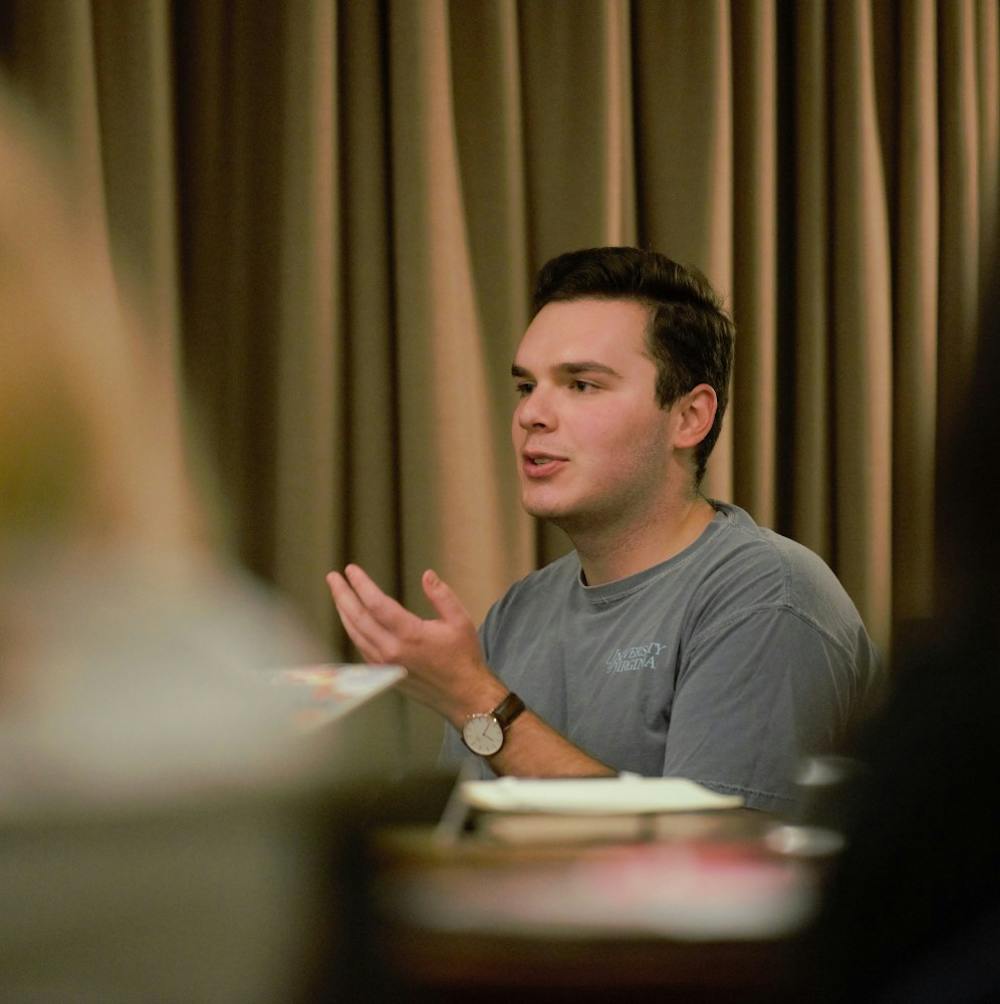The Honor Committee rejected a motion to add an additional Engineering representative to its members Sunday evening. If passed, the motion would have required the student body’s approval through the University Board of Elections ballot for the spring.
The Honor Committee — which has a total of of 27 members — is currently comprised of two Honor Representatives from each school with the exception of the College, which has five. As of fall 2018, there are 11,322 undergraduate students enrolled in the College and 2,811 undergraduates enrolled in the Engineering School.
Sally Greenberg, second-year Engineering student and Honor Support Officer, expressed concern over the lack of Engineering School representation on the Honor Committee.
This past fall, the Honor Committee discussed adding a third Engineering representative. Since 2014, around 25 percent of Honor cases have been Engineering students — according to Julia Batts, Vice Chair for Education and fourth-year Engineering student. The percentage of cases exceeds the proportion of Engineering students at the University.
“I know the consensus is that a lot of E-School students feel underrepresented in the Honor Committee, which makes them feel like it’s not even worth applying to be an Honor Support Officer,” Greenberg said.
The Engineering School is not the only source for potential new representatives. This Friday, University President Jim Ryan formally announced plans for a new School of Data Science. The new school is funded by a $120 million gift from the Quantitative Foundation, led by local hedge fund magnate Jaffray Woodriff.
The School of Data Science will become the University’s 12th school and first since the 2007 creation of the Frank Batten School of Leadership and Public Policy. The new school — which will be created in two to three years — will automatically receive two representatives on the Committee once it has students in attendance.
“Once they are up and running and have students that are enrolled, we will get two representatives from that school as well,” said Ory Streeter, Honor Committee Chair and Medical student.
Some committee members expressed concerns over increasing the number of Engineering School representatives in addition to the mandatory representatives that the new School of Data Science will bring.
Derrick Wang, Vice Chair for Community Relations and third-year College student, expressed similar concerns over the adjustment of representation on the Committee. He cautioned against making individual decisions about appointments, advocating for a more systematic method for distributing representation as needed.
“It highlights a need for us to think more carefully about apportionment,” Wang said. “We want to make sure that we future-proof our decisions with respect to representation.”
After discussion, the Honor Committee voted against the addition of an Engineering School representative, with the exception of the two current Engineering School representatives — Batts and Vice Chair for Investigations and fourth-year student Peyton Sandroni. The proposal will not appear on the UBE ballot this spring.
In addition to the vote regarding Engineering School representation, the Honor Committee also voted on and passed an amendment to the Honor Committee impeachment process.
“This is an amendment that’s been floating around for at least two years” Streeter said. Originally, an Honor Committee member could only be recalled through a majority vote through their school, after the reception of a petition signed by at least 10 percent of that school.
After the approval of the amendment, the impeachment process will require either the aforementioned school vote or a four-fifths vote from the entire Honor Committee along with the petition.







